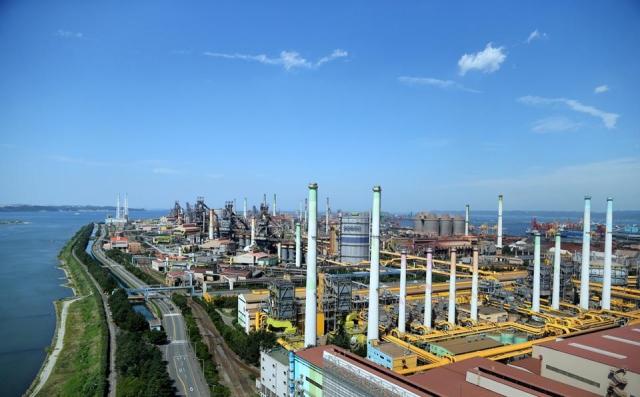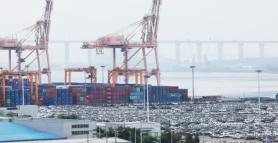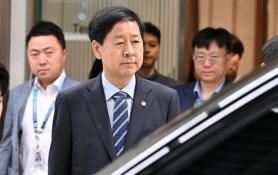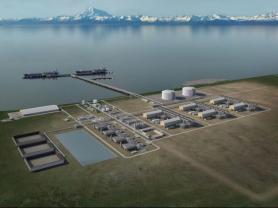
The team, including officials from the Ministry of Trade, Industry and Energy, the Ministry of Economy and Finance, and the Ministry of Land, Infrastructure and Transport, held closed-door meetings at the steel plants of POSCO and Hyundai Steel.
The site visits were intended to assess the feasibility of designating Pohang as a preemptive industrial crisis response zone, according to city officials.
The visit comes as Pohang, long the center of South Korea’s steel industry, suffers from a severe slowdown.
Production at the city’s steel industrial complex, which houses 268 companies operating 355 factories, totaled 1.2 trillion won (about $920 million) in May — a 7.2 percent decline from a year earlier. Cumulative output through May fell 9.3 percent year-on-year to 5.87 trillion won.
Amid growing global competition and weakening demand, major steelmakers have begun scaling back operations in the region.
POSCO shuttered its No. 1 blast furnace last year, followed more recently by the closure of its wire rod plant, citing an oversupply in the global market, falling prices, and outdated equipment. Hyundai Steel closed its No. 2 Pohang plant in July, citing unsustainable losses.
The downturn has prompted an unusual show of political unity.
On Monday, 106 lawmakers from both ruling and opposition parties jointly introduced a sweeping “K-Steel Bill,” which would establish a presidential committee under President Lee Jae Myung to guide the industry’s transition toward low-carbon steelmaking.
The proposed legislation outlines plans to designate four major steel-producing regions — Pohang, Gwangyang, Incheon and Dangjin — as special green steel zones. These areas would benefit from fast-tracked permits, reduced administrative fees, and exemptions from certain antitrust regulations to allow for coordinated restructuring efforts.
The bill also proposes tougher trade defenses, including stricter verification of country-of-origin claims and extended anti-dumping measures, in an effort to stem the influx of low-priced Chinese steel.
Crucially, the legislation seeks to position South Korea’s steel industry for a transition to hydrogen-based production, as global regulatory pressures mount. The European Union is set to impose carbon-based tariffs on steel imports, raising the stakes for producers who continue to rely on coal-intensive methods.
Industry leaders welcomed the proposed overhaul. “This special bill comes at a very important time for overcoming the steel industry crisis and transitioning to green steel technology,” said Lee Kyung-ho, executive vice chairman of the Korea Iron & Steel Association, which has traditionally been led by chairmen of POSCO.
The bill, if enacted, could provide a critical boost to an industry that helped power South Korea’s postwar economic rise — but now finds itself at a crossroads, squeezed between environmental mandates abroad and fierce price competition at home.
Copyright ⓒ Aju Press All rights reserved.




